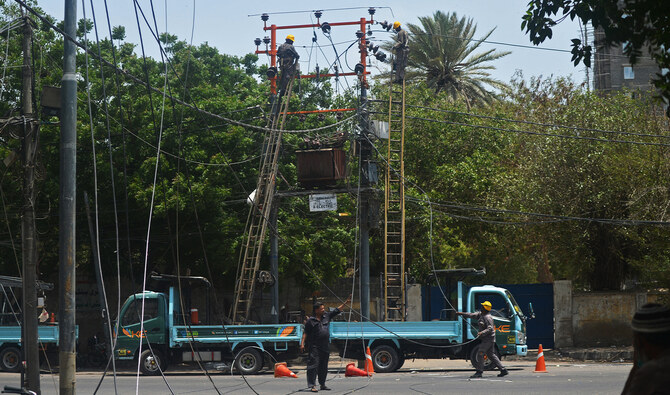ISLAMABAD: Pakistan’s federal cabinet on Tuesday approved a plan to renegotiate agreements with 14 independent power producers (IPPs), a move aimed at lowering electricity costs and addressing the country’s mounting circular debt crisis, according to a government statement.
The issue of IPPs, dating back to agreements signed in the 1990s and 2000s, gained prominence recently amid soaring inflation and public discontent over high electricity prices.
At the core of the problem are capacity charges, or payments made to IPPs regardless of electricity consumption, which have exacerbated Pakistan’s circular debt, now exceeding Rs2.4 trillion ($8.6 billion), as per the energy minister Sardar Awais Ahmad Laghari.
“These revised agreements, finalized after negotiations with 14 IPPs, propose a reduction of Rs802 billion ($2.9 billion) in costs and profits, including a Rs35 billion ($126 million) cut in past excess profits,” the statement said, adding the revised contracts will save the government Rs1.4 trillion ($5 billion) over their duration, translating into annual savings of Rs137 billion ($493.2 million) for consumers.
The renegotiated deals include 10 IPPs established under the 2002 policy and four under the 1994 policy, with one 1994 agreement terminated altogether.
The government’s renegotiation efforts, also influenced by International Monetary Fund reform recommendations, seek to reduce tariffs and capacity payments to ease fiscal pressure.
Prime Minister Shehbaz Sharif was also quoted in the statement as describing the revised agreements as significant achievement.
“These settlements will not only save the national exchequer but also help eliminate circular debt and reduce electricity prices,” he said.
















